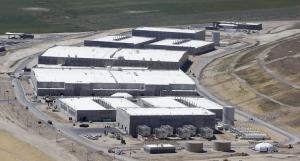By Joseph Menn
That long-sought and closely guarded ability was part of a cluster of spying programs discovered by Kaspersky Lab, the Moscow-based security software maker that has exposed a series of Western cyberespionage operations.
Kaspersky said it found personal computers in 30 countries infected with one or more of the spying programs, with the most infections seen in Iran, followed by Russia, Pakistan, Afghanistan, China, Mali, Syria, Yemen and Algeria. The targets included government and military institutions, telecommunication companies, banks, energy companies, nuclear researchers, media, and Islamic activists, Kaspersky said. (http://reut.rs/1L5knm0)
The firm declined to publicly name the country behind the spying campaign, but said it was closely linked to Stuxnet, the NSA-led cyberweapon that was used to attack Iran's uranium enrichment facility. The NSA is the agency responsible for gathering electronic intelligence on behalf of the United States.
A former NSA employee told Reuters that Kaspersky's analysis was correct, and that people still in the intelligence agency valued these spying programs as highly as Stuxnet. Another former intelligence operative confirmed that the NSA had developed the prized technique of concealing spyware in hard drives, but said he did not know which spy efforts relied on it.
NSA spokeswoman Vanee Vines declined to comment.
Kaspersky published the technical details of its research on Monday, which should help infected institutions detect the spying programs, some of which trace back as far as 2001.
The disclosure could further hurt the NSA's surveillance abilities, already damaged by massive leaks by former contractor Edward Snowden. Snowden's revelations have hurt the United States' relations with some allies and slowed the sales of U.S. technology products abroad.
The exposure of these new spying tools could lead to greater backlash against Western technology, particularly in countries such as China, which is already drafting regulations that would require most bank technology suppliers to proffer copies of their software code for inspection.
Peter Swire, one of five members of U.S. President Barack Obama's Review Group on Intelligence and Communications Technology, said the Kaspersky report showed that it is essential for the country to consider the possible impact on trade and diplomatic relations before deciding to use its knowledge of software flaws for intelligence gathering.
"There can be serious negative effects on other U.S. interests," Swire said.
Read the whole story here:

